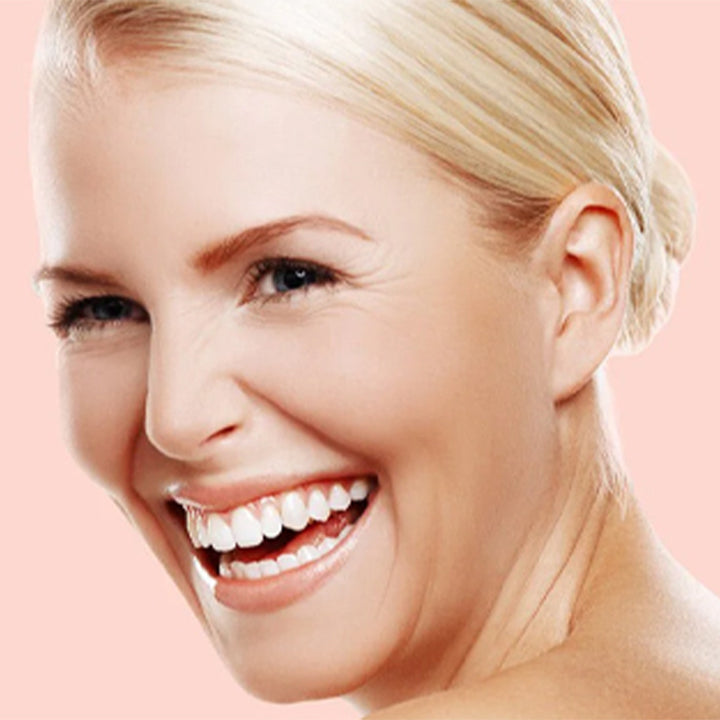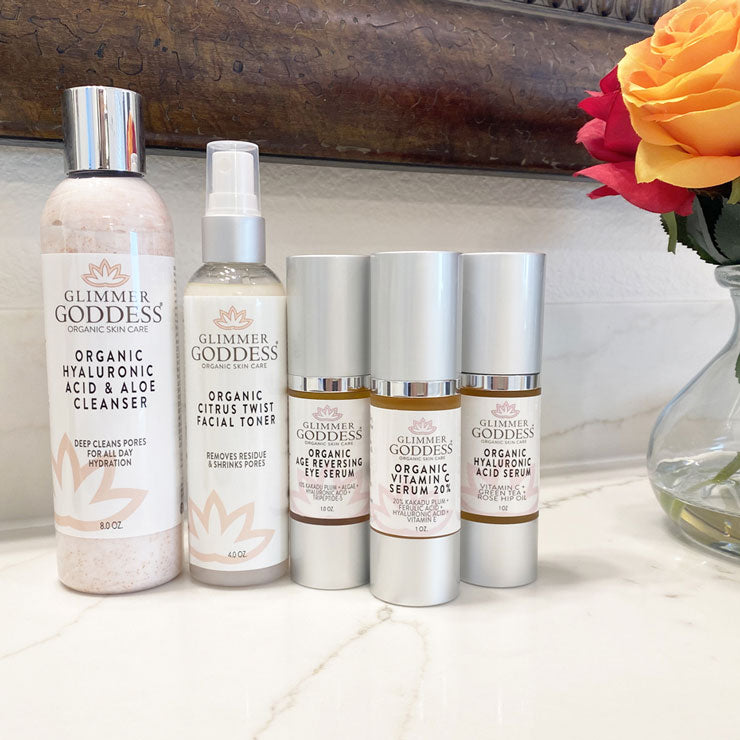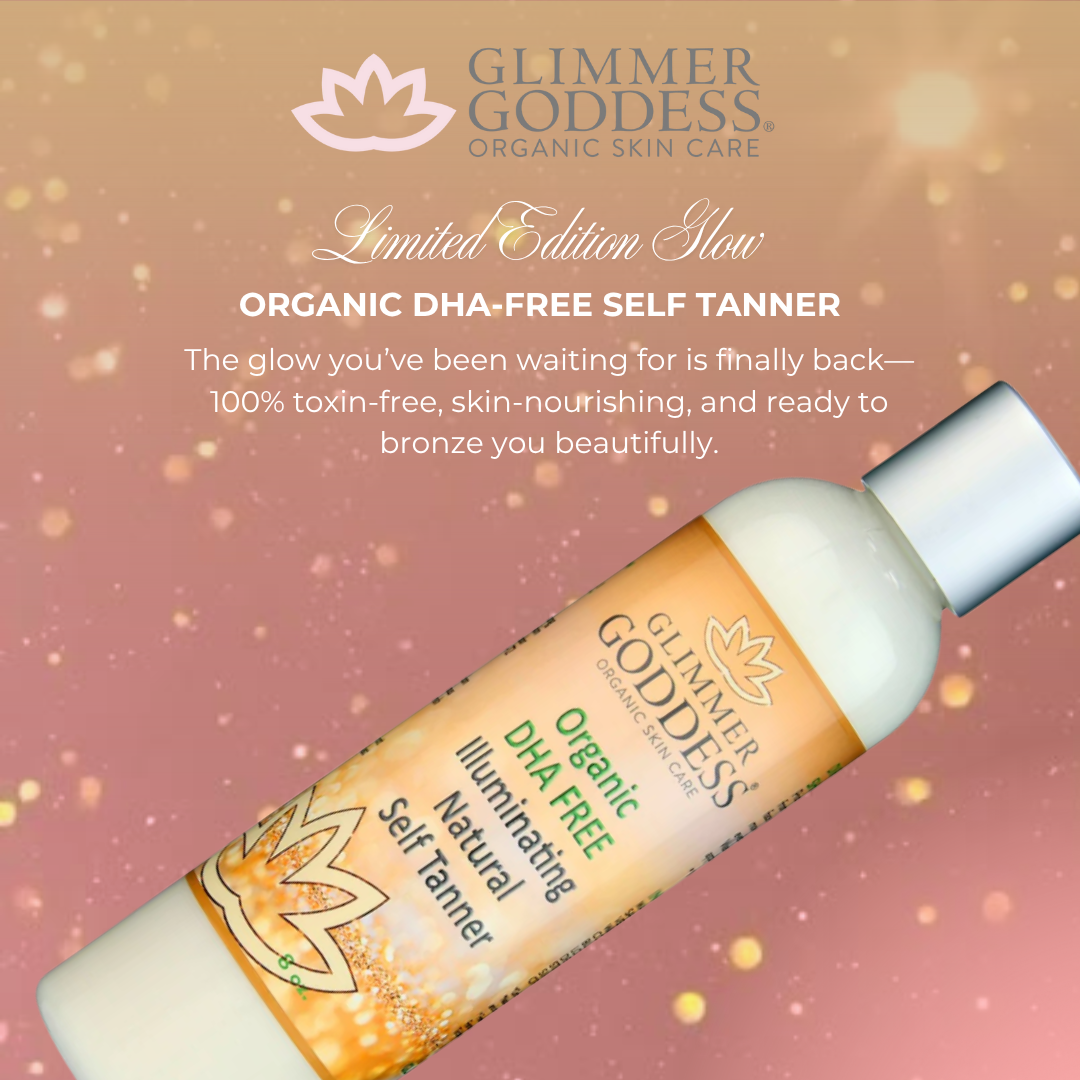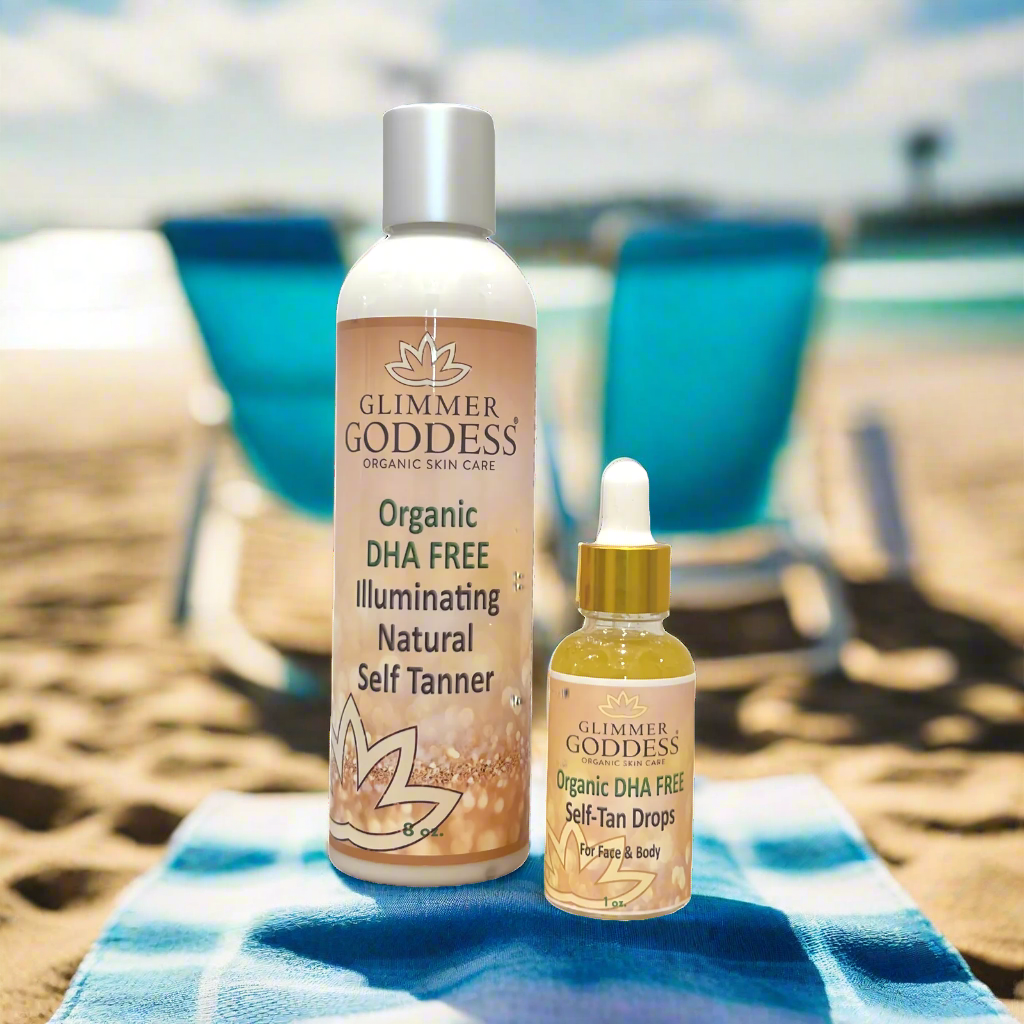
GHK‑Cu Collagen Boost Duo – Copper Peptide Guide
Copper Peptides: What to Expect & How to Use Them
Copper peptides, particularly GHK-Cu, have become a cornerstone in anti-aging skincare thanks to their ability to stimulate collagen and elastin production, calm inflammation, and support skin barrier repair. Used consistently, these naturally derived peptide serums can transform your complexion — restoring firmness, smoothness, and radiance from within.
1. What Results Can You Expect?
Regular use of copper peptides delivers visible improvements such as:
- Smoother texture and fewer fine lines
- Improved firmness and elasticity
- Reduced redness and more balanced tone
- Enhanced hydration and resilient barrier
Most users notice a soft glow within 4–8 weeks, with deeper collagen and elastin improvements by 12 weeks. Copper peptides work gradually to strengthen and renew your skin.
2. Can Copper Peptides Help with Hair?
Yes! GHK-Cu supports scalp circulation and follicle health, which can help improve hair thickness and density. For best results, use a peptide serum formulated specifically for the scalp and massage gently to enhance absorption.
3. Are Copper Peptides Safe with Retin-A?
Absolutely — when layered correctly. Retin-A (tretinoin) and copper peptides can complement each other beautifully.
- Use Retin-A at night and copper peptides in the morning
- Or alternate nights for sensitive skin
- If using together, apply Retin-A first, wait 20–30 minutes, then apply your peptide serum
- Always use SPF daily
This balanced approach prevents irritation and enhances long-term skin renewal.
4. Not All Copper Peptide Products Are the Same
When comparing copper peptide products, formulation quality matters. Look for:
- Stable GHK-Cu complex
- Balanced pH and gentle preservatives
- Hydrating and antioxidant-rich ingredients
- Clinical or stability testing from reputable brands
Our GHK-Cu Collagen Boost Duo pairs a potent peptide serum with a nourishing moisturizer to enhance firmness, hydration, and radiance—all while supporting skin barrier repair.
5. Can You Make Copper Peptides at Home?
DIY copper peptide mixtures are not recommended. Proper formulation requires precision chemistry, pH control, and sterile manufacturing conditions. Always choose a professionally formulated product for safety and proven results.
6. How to Add Copper Peptides to Your Routine
Morning Routine:
- Cleanser
- (Optional) Vitamin C or antioxidant serum
- GHK-Cu Copper Peptide Serum
- Hydrating Moisturizer
- Broad-Spectrum SPF
Evening Routine:
- Cleanser
- Retinoid (optional)
- Copper Peptide Serum
- Moisturizer
Introduce copper peptides slowly—start every other day, then increase to daily use as your skin adjusts.
7. Quick Tips & Precautions
- Patch test before full use
- Start slow when combining with actives
- Store in a cool, dark place
- Consult your dermatologist if pregnant or breastfeeding
Our Recommendation
For a powerful daily duo that delivers visible firming and hydration, try the GHK-Cu Collagen Boost Duo – Copper Peptide Serum + Hydrating Moisturizer. Handcrafted in Texas, this clean, organic pairing helps restore elasticity, smoothness, and glow while nourishing your skin barrier naturally. It’s a luxe yet approachable essential for anyone committed to anti-aging skincare that really works.
References & External Resources
- PubMed: The Role of GHK-Cu in Skin Regeneration
- Cleveland Clinic: What Are Copper Peptides?
- Dermatology Times: Peptides in Modern Skincare
FAQ
What does copper peptide serum do?
Copper peptide serum supports collagen and elastin production, strengthens the skin barrier, calms inflammation, and improves firmness and radiance over time.
What should you not mix copper peptides with?
Avoid layering copper peptides directly with strong acids or pure vitamin C (ascorbic acid). Instead, use them at opposite times of day to preserve their activity.
Is copper peptide better than retinol?
They work differently. Retinol speeds cell turnover, while copper peptides rebuild collagen and calm irritation. Used together in a balanced routine, they complement one another beautifully.
What are the downsides of copper peptides?
They’re generally well-tolerated, but using too high a concentration or mixing with low-pH actives can cause mild irritation. Always patch test and introduce gradually.
Can I use copper peptides with vitamin C?
Yes. Apply vitamin C in the morning and copper peptides at night for maximum benefit.
How often should I apply copper peptides?
Start every other day, then increase to daily use as your skin adjusts.
Are copper peptides good for sensitive skin?
Yes—GHK-Cu is gentle, soothing, and supports barrier repair for sensitive or stressed skin.
Are copper peptides pregnancy-safe?
Consult your healthcare provider before adding new actives during pregnancy or breastfeeding.








